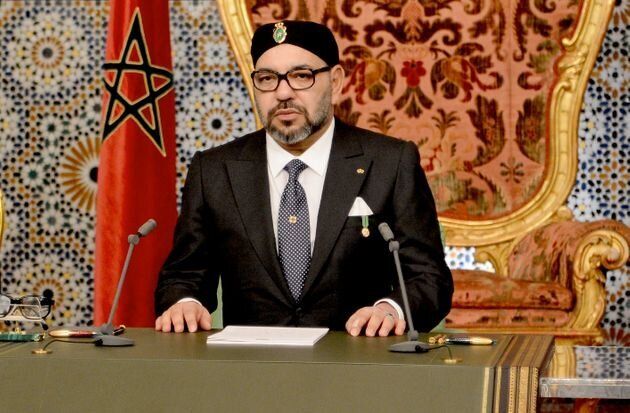King Mohammed VI gave a significant speech on Tuesday at the Parliamentary Conference on “Interfaith dialogue: working together for our common future,” which is being held in Marrakech from June 13 to June 15. He emphasized the crucial role of interfaith dialogue in addressing global challenges and promoting peace among various religious communities.
The international event has brought together parliamentarians, religious leaders, scholars, and experts from around the world, aiming to facilitate meaningful discussions and propose actionable recommendations for fostering interfaith dialogue.
King Mohammed VI expressed gratitude for selecting the Kingdom of Morocco as the host nation for this vital conference, recognizing its significance as a groundbreaking initiative that can yield constructive outcomes and innovative approaches to enhance interfaith relations.
The monarch warmly welcomed all attendees and commended the Moroccan Parliament and the Inter-Parliamentary Union for organizing the conference, which focuses on utilizing interfaith dialogue to foster understanding, peace, and mutual respect among followers of different religions. King Mohammed VI expressed hope that the discussions and debates would result in practical conclusions and recommendations, paving the way for new strategies to promote interfaith dialogue at national and international levels.
Highlighting the numerous challenges humanity faces, including security crises, economic uncertainties, political instabilities, health emergencies, and environmental concerns, King Mohammed VI acknowledged the urgent need for mechanisms, cooperation, and collective action. He emphasized that the conference aims to develop an action plan for parliamentarians and religious leaders to address these challenges through interfaith dialogue, highlighting the dangers of extremism, self-centeredness, and the misuse of religion for malicious purposes.
The monarch cautioned against the misconception of witnessing a clash of religions or civilizations, asserting that it is, in fact, a clash of “ignorances.” He lamented acts of violence, persecution, and killing driven by religious and sectarian beliefs, while also decrying the exploitation of religion for subversive projects. King Mohammed VI stressed the importance of countering narratives of hatred, prejudice, and religious intolerance that fuel conflict, emphasizing that religion should serve as a unifying force rather than a divisive one.
Drawing attention to the rise of ideologies based on “natural inequality” and the stigmatization of others due to their religion, ethnicity, or skin color, the monarch expressed concern over the negative implications for interfaith and intercultural relations. He called for a united effort from all stakeholders who believe in equality between religions, civilizations, and humanity as a whole to reverse this dangerous trend and adopt policies that promote dialogue and mutual respect.
King Mohammed VI underscored the critical role of the institutions represented at the conference in promoting understanding, tolerance, and coexistence through institutional action, awareness-raising, and education. He emphasized that fanaticism is not inherent in religions or religious texts but rather a product of misguided interests. The monarch highlighted the unity of religions, quoting a verse from the Quran that emphasizes the equality of all prophets.
Acknowledging the distressing state of the world, with acts of violence, discrimination, and incitement based on religious or cultural affiliation, King Mohammed VI urged participants to focus on positive aspects and courageous initiatives aimed at strengthening communication and consolidating values of tolerance and understanding. He expressed delight in the diverse attendees, including political elites, religious leaders, intellectuals, and thinkers, who strive for dialogue and cooperation among different faiths, cultures, and civilizations.
The monarch stressed the importance of translating words into action and urged participants to prioritize tangible steps in implementing the conference’s outcomes. He emphasized the need for collective work towards a future where interfaith dialogue plays a central role in fostering peace, harmony, and coexistence among all people.









